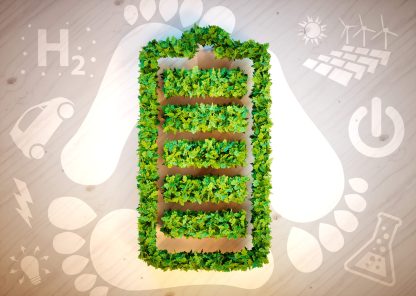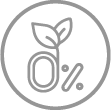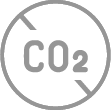Sustainability
Circular Economy
A circular economy is an industrial system that is restorative or regenerative by intention and design. It replaces the end-of-life concept with restoration, shifts towards the use of renewable energy, eliminates the use of toxic chemicals, which impair reuse and return to the biosphere, and aims for the elimination of waste through the superior design of materials, products, systems, and business models.
One of the goals of the circular economy is to have a positive effect on the planet’s ecosystems and to fight the excessive exploitation of natural resources. The circular economy has the potential to reduce greenhouse gas emissions and the use of battery raw materials, optimize agricultural productivity and decrease the negative externalities brought by the linear model. When it comes to reducing greenhouse gases, a circular economy can be helpful:

- Because it uses renewable energy that in the long run is less polluting than fossil fuels.
- Thanks to reusing and dematerializing, fewer materials and production processes are needed to provide good and functional products.
- Because residues are seen as valuable and they are absorbed as much as possible to be reused in the process.
- Since the preferred choices will be energy-efficient and non-toxic materials manufacturing and recycling processes will be selected.
LICO

The non-chemical process
adopted during shredding

Zero wastage and Zero discharge or No battery waste

No sewage treatment

No harmful gas emissions
After setting up our battery recycling plant, the goal is to recover all battery-grade minerals from spent lithium-ion batteries while recycling batteries that are already used and supplying them to battery/cell manufacturers to make new batteries using the same minerals. This will reduce battery waste and battery disposal.
In doing so, we aim to achieve – Closing the Loop.


